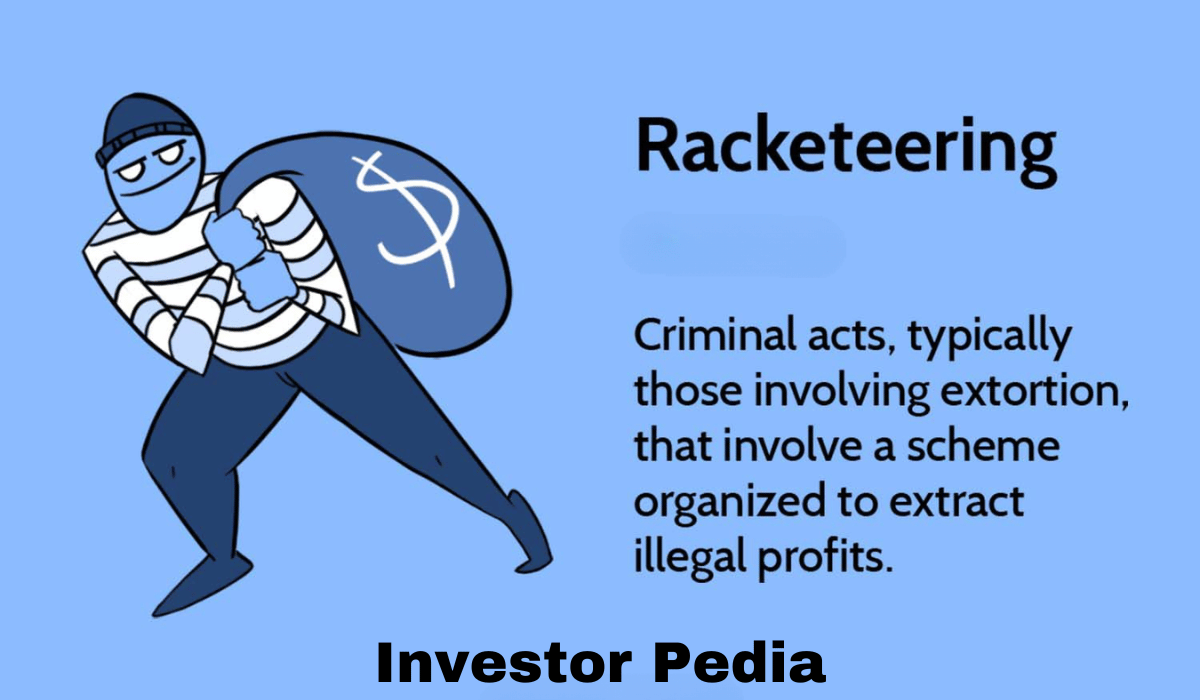Have you ever heard of the term “racketeering” before? It’s a serious crime that involves the operation of an illegal business or enterprise. In this blog post, we will explore the definitions, meanings, types, and examples.
What Is Racketeering?
Racketeering refers to the act of conducting illegal activities in order to obtain money or power. It is typically associated with organized crime and involves a wide range of criminal activities, such as fraud, extortion, and money laundering.
In the United States, racketeering is prohibited under the Racketeer Influenced and Corrupt Organizations (RICO) Act. The RICO Act was passed in 1970 to combat organized crime and allows for the prosecution of individuals or groups that engage in activities.
Meaning of Racketeering
Racketeering involves the operation of an illegal business or enterprise. The purpose of the illegal business is to generate profits through illegal means, such as extortion, bribery, and fraud.
It can take many different forms, including illegal gambling, drug trafficking, and prostitution. In some cases, racketeering activities may be used to support legitimate businesses, such as money laundering through a front company.
Types of Racketeering
There are many different types of racketeering activities, including:
Fraud
This involves the use of deception to obtain money or property from individuals or businesses. Examples of fraud include Ponzi schemes, embezzlement, and securities fraud.
Extortion
This involves the use of threats or violence to obtain money or property from individuals or businesses. Examples of extortion include blackmail and protection rackets.
Bribery
This involves the giving or receiving of money or gifts in exchange for a favor or service. Examples of bribery include bribing a government official to obtain a contract or permit.
Money laundering
This involves the process of hiding the true source of illegally obtained money by transferring it through a series of legitimate businesses or financial transactions.
Drug Trafficking
This involves the production, distribution, and sale of illegal drugs.
Prostitution
This involves the act of engaging in sexual activities for money.
Examples of Racketeering
The Mafia
Mafia is perhaps the most well-known example of organized crime in the United States.
Street Gangs
Street gangs are another type of criminal organization that is often associated with racketeering. They engage in a variety of illegal activities, including drug trafficking and extortion.
Corporate Racketeering
Corporate racketeering involves the use of illegal tactics by businesses to gain an advantage over their competitors. This can include insider trading, bribery, and other forms of financial fraud.
Political Racketeering
Political racketeering involves the use of illegal tactics by politicians and government officials to gain power or money. This can include bribery, kickbacks, and other forms of corruption.
Bernie Madoff
Madoff used the money obtained from new investors to pay off older investors, in order to create the appearance of a profitable investment scheme.
Enron
Enron was a large energy company that collapsed in 2001 due to accounting fraud. The company used a variety of illegal accounting practices to inflate its earnings, which eventually led to its downfall.
How Racketeering is Punished
Conclusion
In conclusion, racketeering is a serious crime that involves the operation of an illegal business or enterprise. Racketeering activities can take many different forms, including fraud, extortion, and money laundering. Examples of racketeering include the Mafia, Bernie Madoff’s Ponzi scheme, and the Enron scandal.
FAQs
Why is it called a racket?
The term “racket” likely originated from the French word “raquette” meaning palm of the hand.
What does rocketeering mean in crime?
There is no common meaning of “rocketeering” in crime. It may be a misspelling of “racketeering.”



